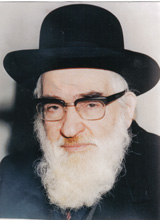- Sections
- Bemare Habazak - Rabbis Questions
11
Answer: It is a fair assumption that the videoing process only included Rabbinic prohibitions. We will see the significance of that below.
We will start with the assumption that the video was done by a Jew. The Shulchan Aruch (Orach Chayim 318:1) rules like the middle opinion in Ketubot 34a, that if one violated Shabbat intentionally, the result of his action is forbidden for the violator forever but is permitted for others after Shabbat. The Mishna Berura (318:5) comments that while the household of the violator may not use that which was done even after Shabbat, others can, including people whom the violator had in mind when he violated Shabbat. Therefore, ostensibly, even your relative might be permitted to benefit from the video.
However, we must consider two issues. The K’tav Sofer (OC 50), regarding a restaurant, posits that while generally a Shabbat violator may sell the food he cooked on Shabbat, that is because he is penalized for his violation in that he cannot eat the food himself. However, in a case of someone who regularly cooks on Shabbat to sell to customers, the penalty must preclude his doing according to plan, so that it is forbidden for him to sell. Consequently, it is forbidden to buy from him. While this could forbid the celebrants to pay the videographer, this does not impact their showing it to you.
The bigger issue is the question of when Shabbat "ends" in this regard. There are opinions that anyone who wants to benefit needs to wait bichdei sheya’asu (the amount of time it would take to get the result if one started after Shabbat). This question is critical here, because one cannot video the bar mitzva after Shabbat, so requiring bichdei sheya’asu would forbid it forever. This concept is found regarding a non-Jew who did work on behalf of a Jew, even in cases that the Jew did not improperly tell him to do so (Beitza 24b). Two possible reasons are advanced for this halacha. Rashi (ad loc.) says that it is in order to not benefit from work done on Shabbat. Tosafot (ad loc.) says that it is to reduce the chance one will ask the non-Jew to do work. The Pri Megadim (Eshel Avraham 325:22) reasons that Rashi’s reason should apply to a Jew who regularly violates Shabbat, whereas according to Tosafot’s reason, we do not expect a religious Jew to ask a Shabbat desecrator to do work on Shabbat. The Mishna Berura (ibid.) adds a reason not to say bichdei sheya’asu for a Jew’s violation – a Jew will not listen to a request to do melacha. One can argue that this does not apply to regular Shabbat violators. The Pri Megadim leaves the matter unresolved, and there is not a consensus among contemporary poskim (in Bemareh Habazak I:31 we leaned toward leniency; Orchot Shabbat 25:(25) leans toward stringency). Bichdei sheya’asu is also less likely to apply to Rabbinic violations (see Mishna Berura 325:42).
If a non-Jew did the videoing, it should definitely require bichdei sheya’asu. On the other hand, the extension of the prohibition to benefit to all Jews is only for Torah-level violations, whereas for Rabbinic ones, it is only for the non-Jew’s intended beneficiaries (Shulchan Aruch, OC 325:8). The Mishna Berura (ad loc. 38) includes members of the recipient’s household and some of his guests in the prohibition, but based on primary sources (see Beit Yosef, OC 515), it is likely that a "relative" viewing the video is not included.
We have seen significant grounds for leniency; there are additional, creative grounds, but we do not wish to commit them to writing. Therefore, if you feel that watching the video helps maintain a good relationship with the family, not only may you watch the video, but you should do so. May your relationship help bring increased appreciation and observance of mitzvot to the bar mitzva and his family.

Tefillin in Pre-Dawn Hours
Rabbi Daniel Mann | Tammuz 13 5776

Ask the Rabbi: Fundamental Questions about Lifnei Iver
Rabbi Daniel Mann | Shevat 5785

White and Nice Clothes and Gold on Yom Kippur
Rabbi Daniel Mann | Tishrei 4 5780

Mistake in Beracha on Delayed Laying of Tefillin – part II
Rabbi Daniel Mann | Sivan 8 5782

Historical View of Rav Mordechai Yaakov Breish (Chelkat Yaakov)
Various Rabbis | 5775

A Layman's Guide to some Halachic Aspects
Rabbi Yirmiyohu Kaganoff | 5773

“Ba’omer” or “La’omer”?
Rabbi Daniel Mann | Iyar 4 5777

Who Knows Thirteen?
Rabbi Yirmiyohu Kaganoff | 5772

Ask the Rabbi: Scratching Improperly Parked Cars
Rabbi Daniel Mann | Iyar 5785
Daf Yomi Makkot Daf 21
R' Eli Stefansky | 1 Iyar 5785
Daf Yomi Makkot Daf 22
R' Eli Stefansky | 2 Iyar 5785






